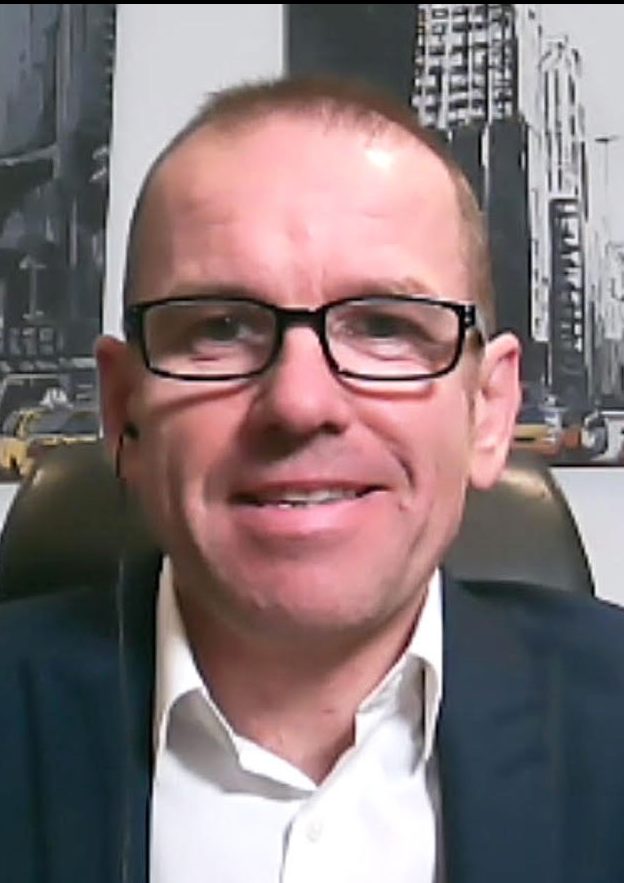 CLOUD
CLOUD
 CLOUD
CLOUD
 CLOUD
CLOUD
Since its founding in 1993, Red Hat Inc. has seen significant growth and witnessed first hand the transformation from an analog to a digital economy.
With years of experience under its belt, Red Hat is looking on the horizon to prepare for emerging technology with its partnership with IBM Corp., giving it a front-row seat to technological progress. The software company employs a variety of experts across different departments to maintain the massive overhead of running a large tech business.
“We typically organize our teams around horizontal technology sectors,” said Stephen Watt (pictured, right), distinguished engineer and head of emerging technologies at Red Hat. “I have an edge team, cloud networking team, a cloud storage team, application platforms team. We’ve got different areas that we attack work and opportunities, but the good ideas can come from a variety of different places, so we try and leverage co-creation with our customers and our partners.”
Watt, along with Parul Singh (pictured, left), senior software engineer at Red Hat, and Luke Hinds (pictured, middle), senior software engineer at Red Hat, spoke with John Furrier, host of theCUBE, SiliconANGLE Media’s livestreaming studio, during the recent Red Hat Summit. They discussed quantum supremacy, how Red Hat manages its consumers’ needs, signature server and more. (* Disclosure below.)
One of the many new technologies emerging is quantum computing, which uses qubits instead of bits and is able to process an exponential amount of data compared to its older counterpart.
“Quantum computers are evolving, and they have been around, but right now you see that they are going to be the next thing,” Singh said. “We define quantum supremacy as, say you have any program that you run or any problem that you solve on a classical computer, a quantum computer would be giving you the results faster.”
Because quantum computers are not as easily accessible as classical computers, Red Hat has sought out a solution that combines OpenShift’s classical components with quantum computing, taking the results and integrating them into classical workloads.
Signature server, or sigstore, is an umbrella organization containing various open-source projects.
“Sigstore will enable developers to sign software artifacts, bills and materials, containers, binaries, all of these different artifacts that are part of a software supply chain,” Hinds said. “It’s very similar to a blockchain. It allows you to have cryptographic-proof auditing of our software supply chain, and we’ve made sigstore so that it’s easy to adopt, because traditional cryptographic signing tools are a challenge for a lot of developers to implement in their open-source projects. “
Open-source boasts the advantage of being transparent, allowing everyone to see the code with no hidden surprises or security issues lurking underneath. Another advantage of open-source software is agency, according to Watt.
“If you’re waiting on a vendor to go do something, if it’s proprietary software, you don’t have much agency to get that vendor to go do that thing. Whereas the open source, if you’re tired of waiting around, you can just submit the patch,” he said. “So people can then go and take sigstore, run it as a smaller internal service. Maybe they discover a bug. They can fix that bug, contribute it back to the operationalizing piece, as well as the traditional package software, to make it a much more robust and open service. So you bring that transparency and the agency back to the software-as-a-service model as well.”
Watch the complete video interview below, and be sure to check out more of SiliconANGLE’s and theCUBE’s coverage of Red Hat Summit. (* Disclosure: TheCUBE is a paid media partner for Red Hat Summit. Neither Red Hat Inc., the sponsor for theCUBE’s event coverage, nor other sponsors have editorial control over content on theCUBE or SiliconANGLE.)
THANK YOU